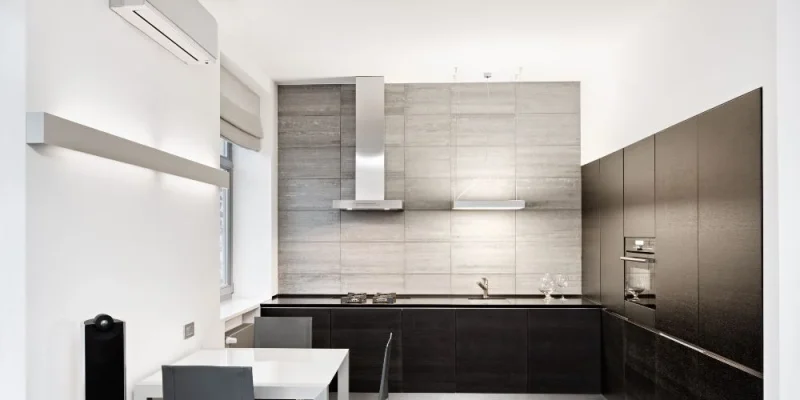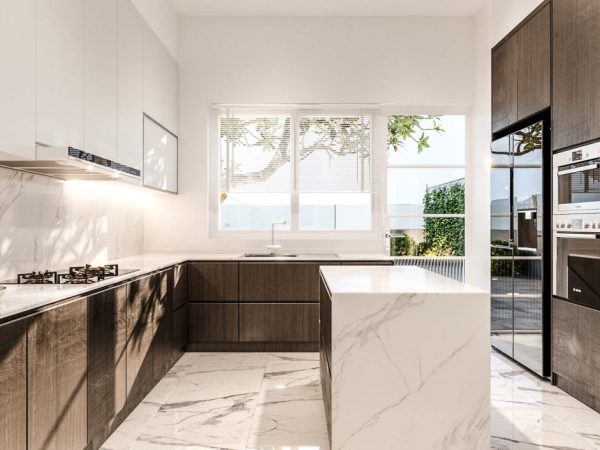Air Conditioned Kitchen: The Modern Solution for Comfortable Cooking

Cooking is an art, but it can be challenging when heat and humidity turn your kitchen into a sauna. Enter the air-conditioned kitchen, a modern solution to keep your cooking space cool, comfortable, and efficient.
In this article, we’ll explore the advantages of having an air conditioned kitchen, tips for installing and maintaining kitchen AC systems, and how they enhance your overall culinary experience.
What Is an Air Conditioned Kitchen?
An air-conditioned kitchen is a cooking space equipped with an air conditioning system to regulate temperature and humidity. Unlike traditional kitchens, which can become unbearably hot due to stovetops, ovens, and other appliances, air-conditioned kitchens ensure a pleasant environment for cooking and dining.
Why Choose an Air Conditioned Kitchen?
Adding air conditioning to your kitchen offers numerous advantages, especially for those who spend long hours cooking or entertaining guests.
Enhanced Comfort
Cooking can generate significant heat, particularly in smaller spaces or during summer. An air-conditioned kitchen keeps the temperature cool, making it more enjoyable to prepare meals.
- Example: Imagine preparing a holiday feast without breaking a sweat, even with multiple burners and the oven running simultaneously.
Improved Energy and Efficiency
A well-ventilated and temperature-regulated kitchen allows you to focus on cooking without distractions caused by excessive heat.
- Benefit: Productivity increases when the environment is comfortable.
Better Hygiene
High heat and humidity in kitchens can lead to mold growth, food spoilage, and pest issues. Air conditioning helps maintain a dry and hygienic environment.
- Pro Tip: Pair your kitchen AC with proper ventilation to eliminate smoke and odors effectively.
Stylish and Modern Appeal
Air-conditioned kitchens have become a hallmark of luxury homes and restaurants, adding a sense of sophistication and modernity to your cooking space.
Encourages Socializing
With a cool and comfortable kitchen, family members and guests are more likely to gather, turning your kitchen into a welcoming social hub.
Types of Air Conditioning Systems for Kitchens
Choosing the right AC system for your kitchen is crucial to ensure efficiency and functionality. Here are the most common options:
Split Air Conditioning Systems
- Installed on walls, with an indoor and outdoor unit.
- Quiet operation and effective cooling.
Best For: Medium to large kitchens.
Window Air Conditioners
- Installed in a window or wall opening.
- Budget-friendly and easy to install.
Best For: Smaller kitchens with limited space.
Portable Air Conditioners
- Freestanding units that can be moved as needed.
- Requires a vent to the outside for hot air.
Best For: Renters or temporary cooling solutions.
Ductless Mini-Split Systems
- Similar to split systems but without ductwork.
- Energy-efficient and easy to maintain.
Best For: Kitchens in homes without central HVAC systems.
Things to Consider When Installing Air Conditioning in the Kitchen
Heat Generation
Kitchens produce significant heat from cooking appliances, so choose an AC system with sufficient cooling capacity.
- Tip: Opt for an AC unit with a higher British Thermal Unit (BTU) rating for better cooling.
Ventilation and Exhaust
Proper ventilation is essential to remove smoke, odors, and grease. Pair your AC with a range hood or exhaust fan.
Energy Efficiency
Look for energy-efficient systems with a high SEER (Seasonal Energy Efficiency Ratio) rating to reduce electricity costs.
Placement
Install the AC unit in a location that maximizes airflow while avoiding direct exposure to heat sources.
Maintenance
Regularly clean and service the AC unit to ensure optimal performance and longevity.
Benefits of Air Conditioning in Commercial Kitchens
While home kitchens benefit from AC, the advantages are even more pronounced in commercial kitchens:
- Improved Productivity: Keeps chefs and kitchen staff focused and comfortable during long shifts.
- Enhanced Food Safety: Maintains a stable environment for food storage and preparation.
- Compliance with Regulations: Helps meet health and safety standards.
Cost of Installing an Air Conditioned Kitchen
The cost of installing AC in a kitchen varies depending on factors such as the type of system, kitchen size, and labor costs.
| Type of AC System | Approximate Cost |
| Split Air Conditioner | $2,000–$5,000 (including installation). |
| Window Air Conditioner | $150–$600. |
| Portable Air Conditioner | $200–$800. |
| Ductless Mini-Split System | $2,000–$8,000. |
Tips for Maintaining an Air Conditioned Kitchen
- Clean Filters Regularly: Dirty filters reduce airflow and efficiency.
- Inspect Ducts and Vents: Ensure there are no blockages.
- Schedule Professional Servicing: Have your AC system inspected and serviced annually.
- Use a Range Hood: Prevent grease and smoke from clogging your AC system.
- Monitor Energy Usage: Upgrade to energy-efficient models to save on electricity costs.
Conclusion
An air-conditioned kitchen is no longer a luxury—it’s a practical upgrade for modern homes and commercial spaces. By ensuring comfort, improving hygiene, and enhancing productivity, kitchen AC systems have become an essential feature for homeowners and chefs alike.
Whether you’re designing a new kitchen or upgrading an existing one, investing in an air-conditioned kitchen will elevate your cooking experience and create a more enjoyable environment for everyone.
Ready to transform your kitchen into a cool and comfortable space? Explore air conditioning options today!
FAQs
1. Can I install air conditioning in an existing kitchen?
Yes, most kitchens can be retrofitted with an AC system. Consult a professional to determine the best option for your space.
2. Does air conditioning in the kitchen increase energy bills?
While running an AC unit may increase energy usage, choosing an energy-efficient model can help minimize costs.
3. Is air conditioning safe for food storage in the kitchen?
Yes, air conditioning helps maintain a stable and cool environment, reducing the risk of food spoilage.
4. What is the best AC system for a small kitchen?
Window or portable air conditioners are ideal for small kitchens due to their compact size and affordability.
5. How do I ensure proper ventilation in an air conditioned kitchen?
Install a range hood or exhaust fan to remove smoke and odors while using the AC for cooling.
Also read: Marketing Slick: What It Is and How to Create One That Sells











